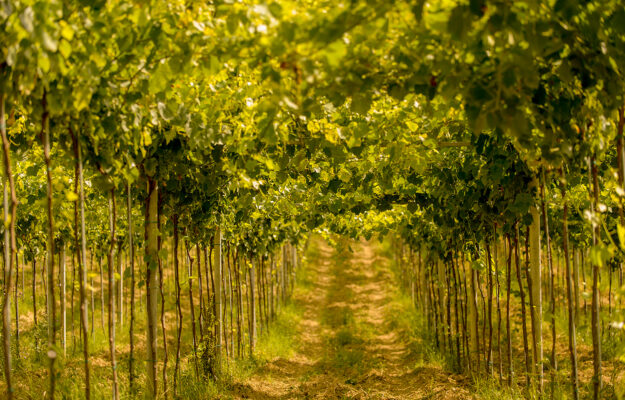If downy mildew has been one of the unwelcome protagonists of the 2023 grape harvest, especially in the Center-South, in Abruzzo, it has been a real scourge, with a -70% drop in production, more or less, in all its four provinces. And that’s why all the players in the production chain of the world of Abruzzo wine met today, in Pescara, to launch yet another appeal to the political world with the hope of finally receiving concrete answers to the very serious situation that has, unfortunately, been determined as a result of the very heavy rainfall that affected the entire regional territory in April and May; rainfall that in some areas has exceeded even 200 mm/month, that is, about three times the average for the period, with “catastrophic” consequences from the production point of view.
“We all agree that this is really the last appeal that the Abruzzo wine world is making to the political class of the Abruzzo Region, of whatever “color” it may be”, state the representatives of the Abruzzo wine sector, stressing that: “with the harvest now over, we can confirm, with absolute certainty, an average drop in grape production of about 70%; a drama that affects in a widespread and more or less homogeneous way all wineries in the four provinces. Abruzzo viticulture has more than 15,000 wineries for 32,500 hectares under vine”, Assoenologi, Città del Vino, Cia - Agricoltori Italiani, Coldiretti, Confagricoltura, Confcooperative, Consorzio di tutela Vini d’Abruzzo, Copagri, Daq Vino, Legacoop, Liberi Agricoltori, Movimento Turismo del Vino jointly stress. According to which, “after months of proclamations, promises and false expectations, the political and managerial class of the Abruzzo Region to date is unable to give clear answers in support of the sector”, and for this reason the actors involved explain that “we will be forced to take to the streets; all of us in recent months have made specific requests to support the production world and provided operational indications regarding the blight emergency, but to no avail. We are also ready to hand back our voter cards”.
To date, the voices of Abruzzo wine say, there has only been the allocation of very few economic resources, absolutely insufficient to deal with the difficult situation of the moment, considering that the national wine sector has a turnover of more than 7 billion euros without, of course, considering all the allied industries: in the regional sphere we speak of 5 million in 2 years and in the national sphere of 7 million; financial allocations far from those needed.
“For the Abruzzo region alone we have a now ascertained loss of 2.7 million quintals of grapes, equal to 2 million hectoliters of wine, which in terms of bottled wine is equivalent to 260 million pieces; if we were to estimate the loss of income for the companies we can indicate 108 million euros loss on grapes, 130 million on bulk and 520 million on bottled. A conservative estimate leads us to believe that the wine sector in the Abruzzo region will suffer an economic loss of no less than 380 million euros”.
According to the various organizations, there is a need for impactful measures at the national level, for the survival of thousands of wine companies, which cannot but necessarily include adequate direct compensation to companies. At the same time, three main points were shared on which action could and should be taken in a more than timely manner. Which are the suspension of payment of outstanding mortgages and loans (principal and interest) for at least two years, without first placing “bank guarantees” (as was done during the Covid emergency) that would automatically make the applicant companies unreliable in front of the banks, for at least 24 months, therefore unfit for any type of new financing; the suspension and/or reduction of Inps contributions; and the zeroing of interest rates for stock purchase financing to reinstatement, with a simplified preliminary investigation that does not take into account financing already in place.
In the first two cases, stresses the applicants, the competence would fall to the government, while, in the third, the role of the Region is fundamental, “although we hope that the latter will be the spokesperson for the interests of the Abruzzo wine world even at national tables. Ultimately, the entire production chain wants to make this final appeal before proceeding with street demonstrations in the presence of hundreds of thousands of producers exhausted by the very difficult situation and who, if not adequately aided and supported, risk seeing decades of hard work thwarted”.
Copyright © 2000/2026
Contatti: info@winenews.it
Seguici anche su Twitter: @WineNewsIt
Seguici anche su Facebook: @winenewsit
Questo articolo è tratto dall'archivio di WineNews - Tutti i diritti riservati - Copyright © 2000/2026







































































































































































































